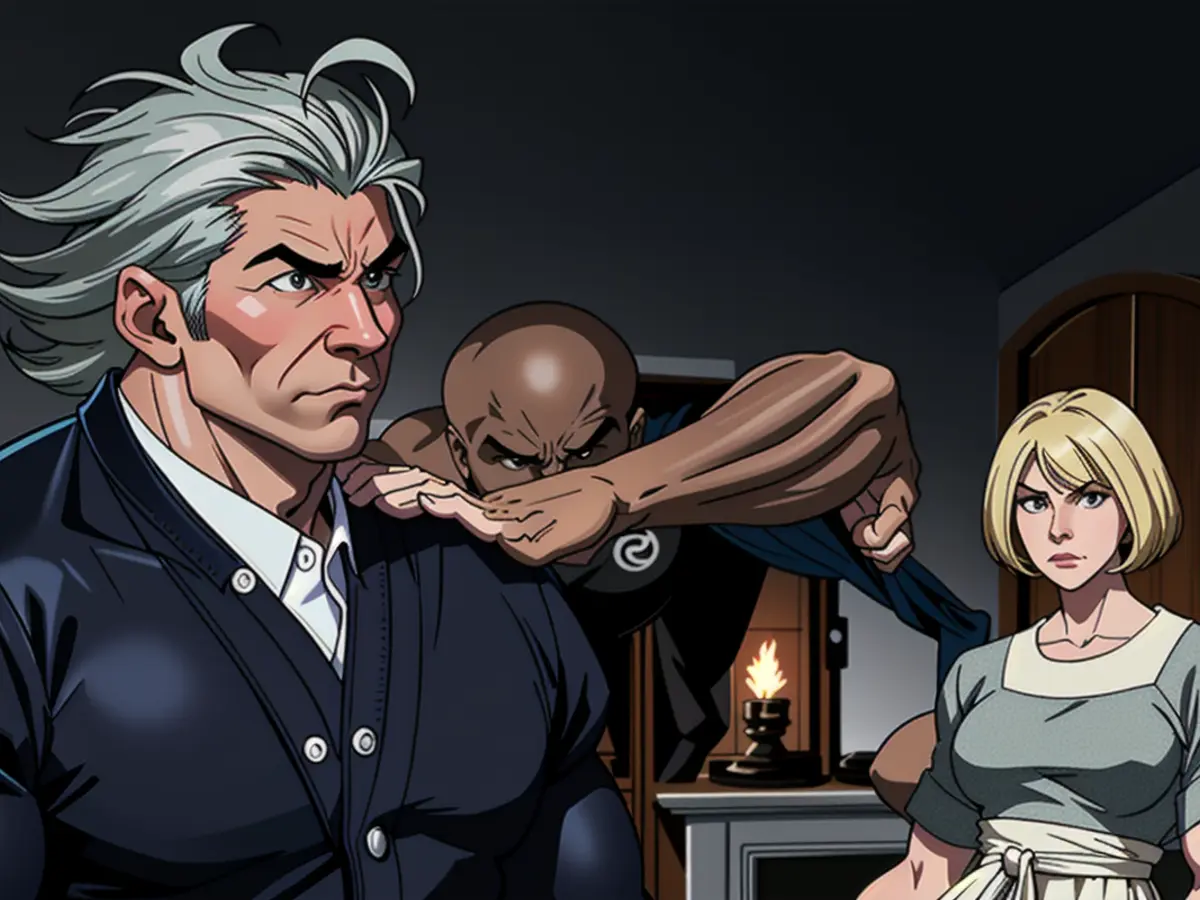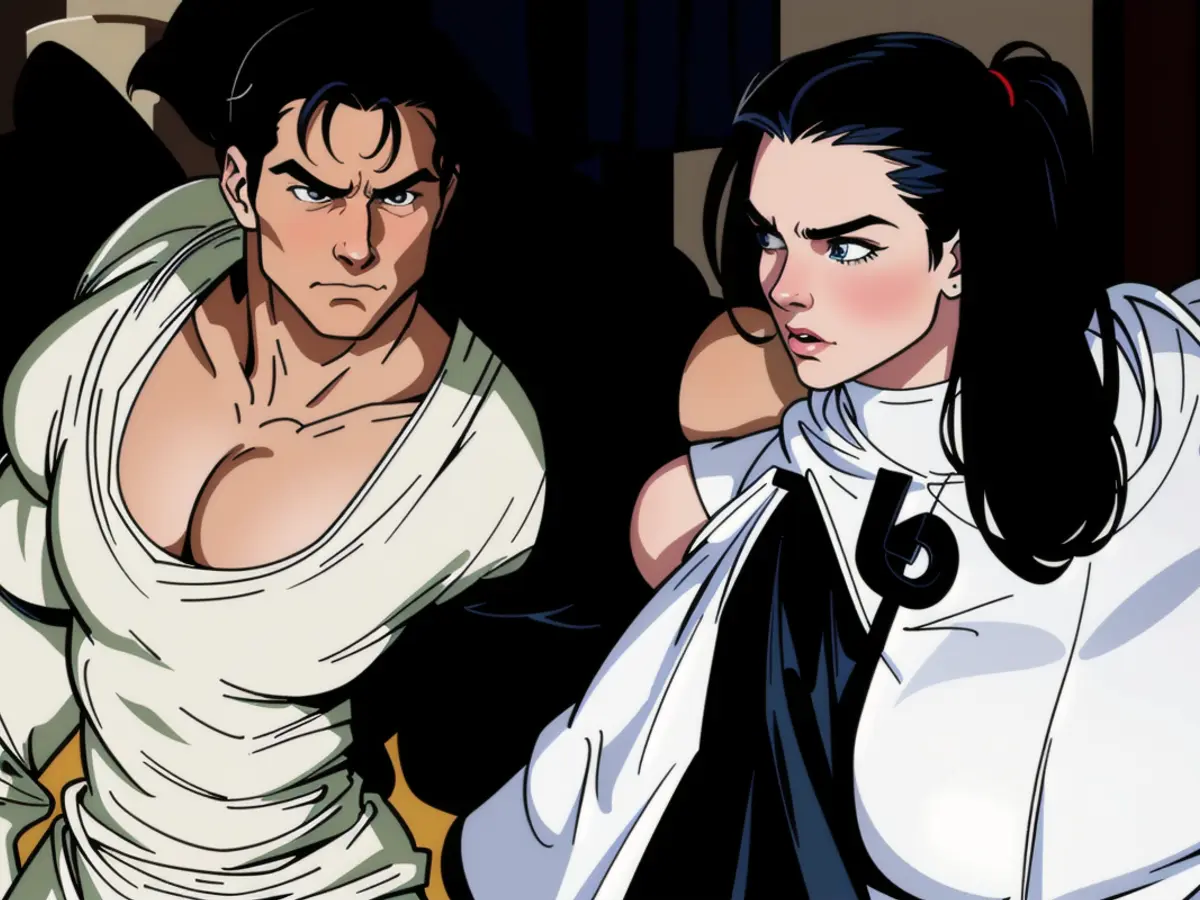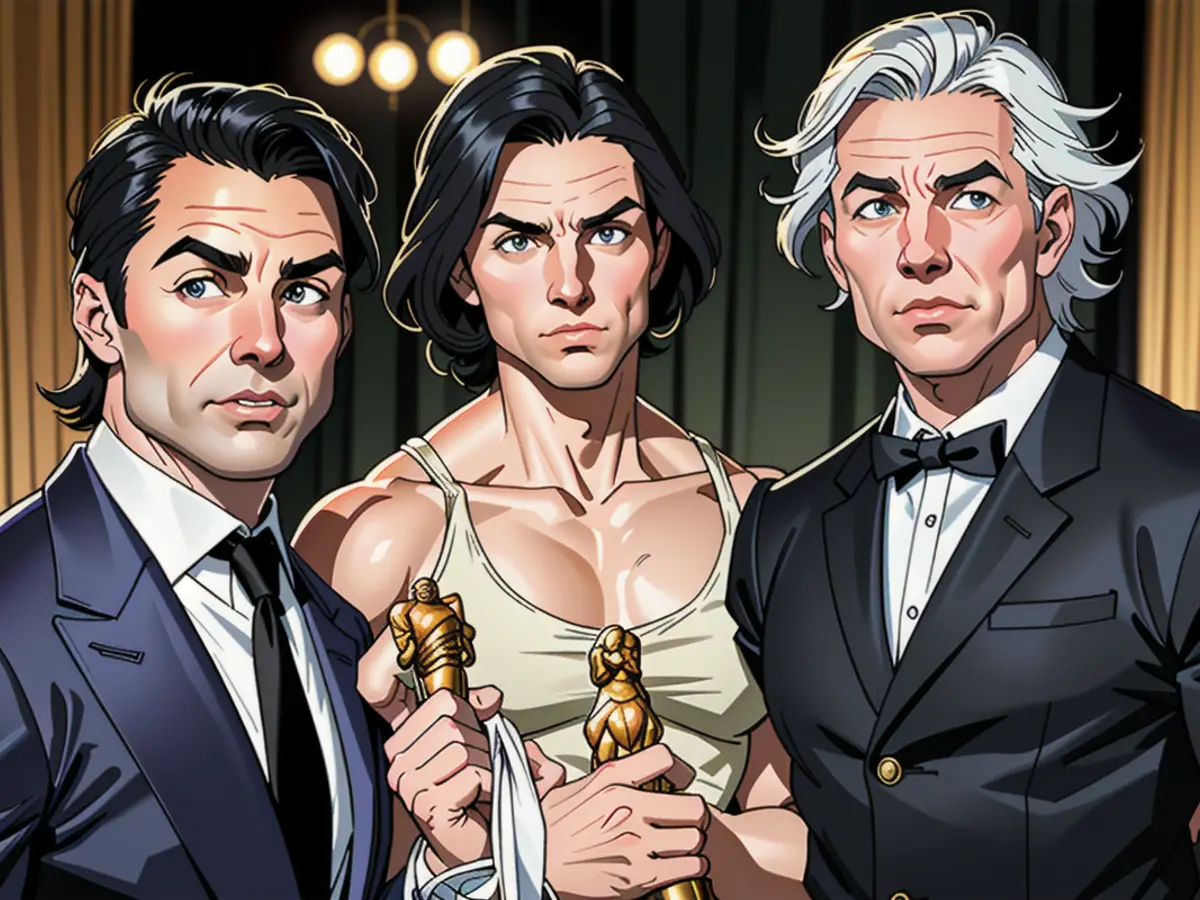From "Vanity Fair" Editor to Hollywood's Kingmaker: A Tale of Power, Glamour, and Oscar Nights
- ~ 5 Min Read
Former Vanity Fair Chef Candidly Critiques the Overconfidence of the Cruise Clan and Anna Wintour - Ex-Vanity Fair editor discusses the Cruise family dynamic and Anna Wintour's perceived arrogance.
In his recently released memoir, When the Good Times Rolled, Graydon Carter spills the beans on his 25-year reign at the iconic US magazine, Vanity Fair. Known for its fusion of entertainment, politics, and celebrity gossip, the magazine was the backdrop for numerous tales that read like they were lifted straight from a golden era of journalism - drenched with glamour, money, and power.
Glitz, Glamour, and a Hint of Madness
Transporting us back in time, Carter's memoir is brimming with anecdotes that paint a picture of a bygone age when excess was the norm. The daily routine included jetting off to Europe on the Concorde, staying in luxury hotels, driving around in a chauffeured car, and maintaining an expense account that knew no bounds. A passport photo snapped by the revered photographer, Annie Leibovitz, was just a walk in the park. In a conversation with "Page Six", Carter justifies these luxuries as strategic moves, reflecting his then-chairman Samuel Irving Newhouse Jr.'s (Si) vision for a more enticing magazine. "Si made Condé Nast reign - and part of its allure were the limousines lining the streets every day. His madness had a method," says Carter.

The similarities between Vanity Fair and its Condé Nast sister publication, Vogue, led by the esteemed Anna Wintour, are worth noting. As Carter explains, he dealt with "complicated feelings" towards Wintour, who would sometimes treat him like an old friend and at other times like a mere parking attendant. But their worlds intertwined when their kids both attended the elite Collegiate School in New York. And it seems that Wintour might have had a role in Carter's eventual departure from Vanity Fair in 2017.
The Legendary Oscar Nights
But the juiciest stories in Carter's memoir revolve around the legendary Oscar parties he started shortly after assuming the editor role. Founded as a response to Hollywood agent Swifty Lazar's passing, the first party began modestly with 150 people for dinner and another 150 for the after-party. However, it soon became evident that everyone wanted a piece of the action, not for the fun of it, but as a prime opportunity for networking.
As the popularity of the parties grew, so did the challenges in managing the guest list. The gatekeeper was often subjected to bribes, threats, and even violence. A Saudi prince once offered a staggering $250,000 to get on the list. However, the mission remained clear: bring together as many A-list celebrities, particularly Oscar winners, as possible under one roof[1][2].

Security was tight, with firefighters guarding the entrance. Those with Oscars were granted VIP treatment, escaping the lengthy queues. The rest had to wait, and some were even turned away. People came up with the craziest excuses to gain entry. Once, a man in a tuxedo showed up with a small pig, claiming it was the famous pig character from the nominated film "Babe". They let him in, but it was soon revealed that it wasn't the real "Babe".
Today, Carter admits he would rather throw an Emmy party than an Oscars bash, as television is more relevant than films[3]. One of his last scoops before leaving Vanity Fair was the cover featuring Meghan Markle, who was then just Prince Harry's girlfriend. Carter was surprised when his staff suggested Markle for the cover, as he had no prior relationship with her. In the interview, she expressed her displeasure about the focus on Prince Harry[3].
In his memoir, the now 75-year-old offers a piece of advice for success: always remain open to new experiences. His formula seems to have worked, as he launched the successful digital newsletter, "Air Mail," in 2019, along with New York Times reporter Alessandra Stanley[4]. He also co-owns the restaurant Waverly Inn, located near his New York home[4].
A Golden Age Remembered

Reflecting on his time at Vanity Fair, Carter muses that golden ages are often only recognized in hindsight. "You never know when you're living in a golden age," he reflects[4]. The era of unlimited resources and seemingly impossible accomplishments has passed, but the memories of glamour, power, and friendship will remain etched in the annals of Hollywood history.
Sources:1. Enenkel, M. (2018, February 27). Harvey Weinstein banned from star-studded Vanity Fair Oscars party. BBC News2. Heller, M. (2017, February 26). Graydon Carter confirms Harvey Weinstein was banned from Vanity Fair's Oscar party. The Washington Post3. Sandberg, C., & Ménard, J. (2019, October 15). Vanity Fair's Graydon Carter Reveals Stormy Daniels Story, Parties with Stars — and Shares BB King Meltdown The Hollywood Reporter4. Dolan, T., & Johnson, L. (2019, October 15). Graydon Carter Exits Vanity Fair After 25 Years The New York Times
Key Ideas: Graydon Carter's memoir, When the Good Times Rolled, offers a glimpse into the legendary Oscar parties hosted by Vanity Fair. Here are some crucial anecdotes:
- Harvey Weinstein's Ban: Harvey Weinstein was permanently barred from the party due to his inappropriate behavior and attempts to circumvent the guest list[1][2].
- The Origins of the Party: The Oscar parties were initiated as a response to the passing of Hollywood agent Swifty Lazar, aiming to provide a platform for Hollywood elites to mingle without religious or social divisions[3].
- Exclusivity and Power Dynamics: Carter focused on making the event exclusive, ensuring that all guests felt valued regardless of their status outside the party[3].
- Encounters and Relationships: Throughout his tenure at Vanity Fair, Carter formed connections with several influential figures, including media moguls and superagents[3].

These tales highlight Carter's vision and experiences during the Vanity Fair Oscar parties, demonstrating a blend of glamour, power dynamics, and personal relationships that characterized these events.
- Graydon Carter, in his memoir, shares an anecdote about a conversation with an attendant at one of his Vanity Fair Oscar parties, stating, "I'm not going to be a big fan of your new show," referring to a heated exchange between Carter and a television producer during the event.
- Carter also mentions his complex relationship with Anna Wintour, editor of Vogue, who was often treated like a mere attendant by him despite their shared world of power and glamour.
- While promoting his new digital newsletter, "Air Mail," Graydon Carter expressed his preference for hosting Emmy parties over Oscars bash, citing television's growing relevance compared to movies.









